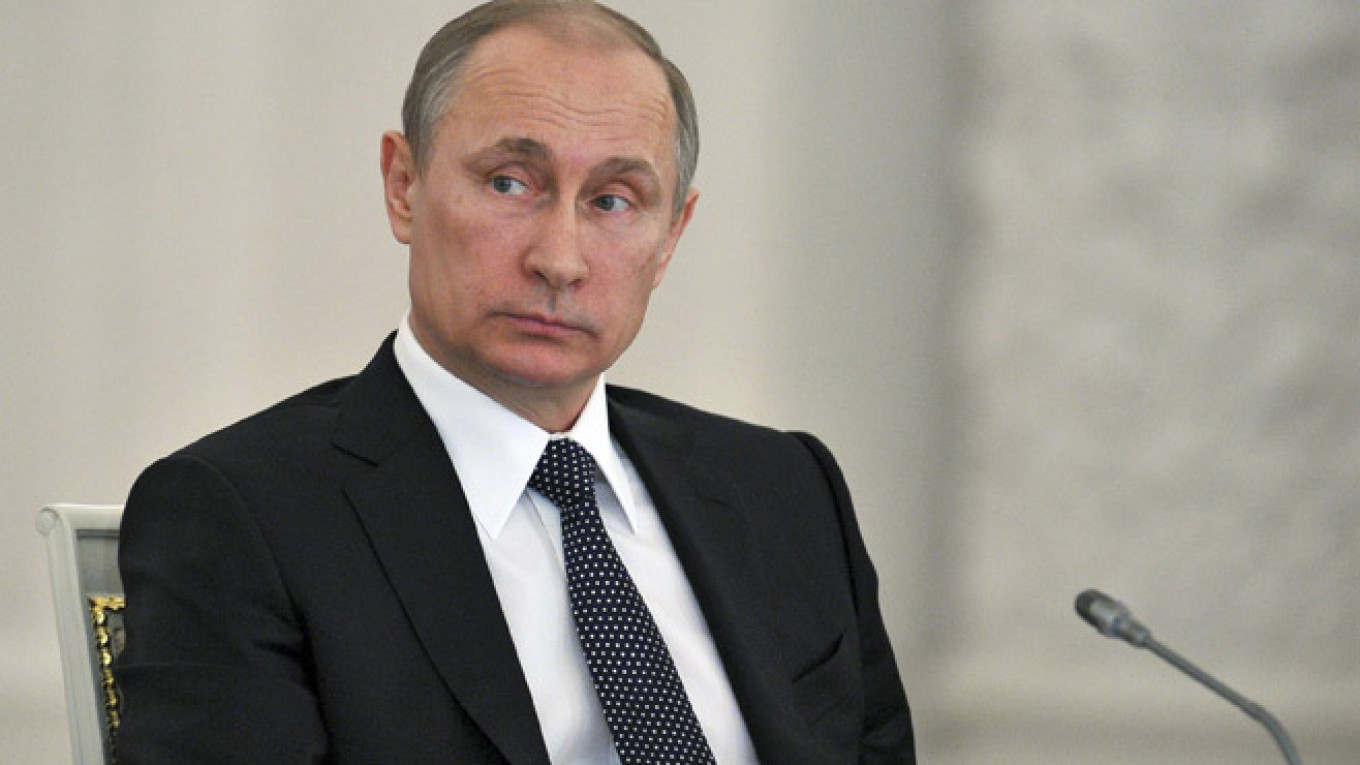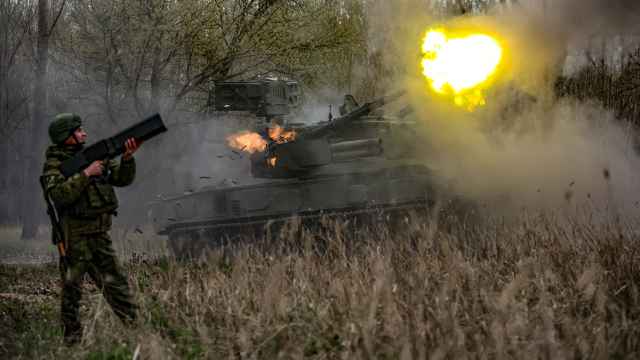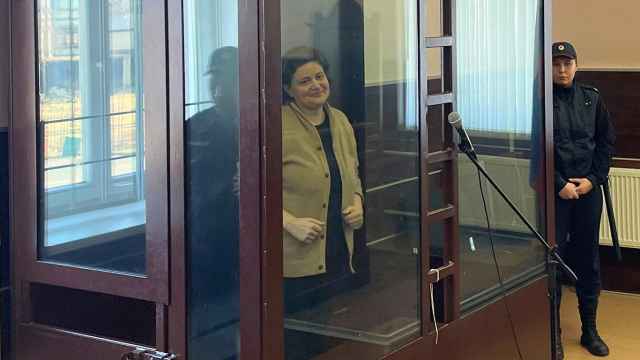Russian President Vladimir Putin said U.S. President Barack Obama had “personally” invited him to attend the nuclear summit held in Washington last week, but he declined over insufficient prominence offered to Russia at the event, and Moscow's complaints about implementation of a disarmament deal.
“Yes, I was invited, and my colleague [Obama] personally invited me,” Putin told a news conference for regional media in St. Petersburg, according to a transcript released by the Kremlin.
“Frankly, I didn't really mind going, but our experts in the nuclear affairs field and the Foreign Ministry nonetheless recommended not doing that,” he said.
Putin cited two main reasons for turning down the invitation, starting with his displeasure at what he described as a secondary role offered to Russia at the “informal event, a primarily American event” in Washington.
At the summit, Putin said, “everything was divided, I believe, into five groups, and we were invited to participate in only one.”
“Such a large nuclear power as Russia cannot participate in or illuminate such an event by its presence, and yet be unable to influence the drafting of final resolutions,” he said. “We had told our partners openly and directly about this quite a long time ago.”
The other issue troubling Moscow was Washington's failure to destroy its stockpile of weapons-grade plutonium, Putin said.
“We signed the appropriate pact and agreed that those materials would be destroyed in a certain manner — specifically, an industrial one –— which required building specialized facilities,” Putin said.
“We fulfilled our obligations, we built that facility,” he said. “Our American partners did not.”
The United States was to provide $400 million to help Russia with its disposal program under the 2000 pact, known as the Plutonium Management and Disposition Agreement.
After the end of the Cold War, hundreds of tons of weapons-grade plutonium and highly enriched uranium were deemed surplus to U.S. and Russian defense needs, according to the U.S. National Nuclear Security Administration.
Moscow and Washington pledged to dispose of at least 34 tons apiece of such materials under the 2000 deal, and an amendment protocol 10 years later.
The amendments reaffirmed the sides' commitment, and capped U.S. assistance to the Russian program at the $400 million Washington had initially offered. Up to $300 million could be spent on Russia's “development, construction, and modification of facilities” for plutonium disposal, while another $100 would be spread out over the decades of verified disposition.
The U.S. facility for disposing of surplus weapons-grade plutonium had been expected to begin operating in 2016, according to White House estimates at the time the amendments were signed.
But “unanticipated cost increases” prompted the National Nuclear Security Administration to “slow down” the project while it searched for more effective options, the agency said in 2013.
On the eve of last week's nuclear security summit, Obama published an article in The Washington Post, reiterating U.S. accusations that Russia had violated the 1987 Intermediate-Range Nuclear Forces Treaty, and urged Russia “to comply fully with its obligations.” The United States accuses Russia of violating the INF treaty by testing medium-range ballistic missiles.
“Along with our military leadership, I continue to believe that our massive Cold War nuclear arsenal is poorly suited to today’s threats,” Obama said in the article published March 31. “The United States and Russia — which together hold more than 90 percent of the world’s nuclear weapons — should negotiate to reduce our stockpiles further.”
Contact the author at newsreporter@imedia.ru
A Message from The Moscow Times:
Dear readers,
We are facing unprecedented challenges. Russia's Prosecutor General's Office has designated The Moscow Times as an "undesirable" organization, criminalizing our work and putting our staff at risk of prosecution. This follows our earlier unjust labeling as a "foreign agent."
These actions are direct attempts to silence independent journalism in Russia. The authorities claim our work "discredits the decisions of the Russian leadership." We see things differently: we strive to provide accurate, unbiased reporting on Russia.
We, the journalists of The Moscow Times, refuse to be silenced. But to continue our work, we need your help.
Your support, no matter how small, makes a world of difference. If you can, please support us monthly starting from just $2. It's quick to set up, and every contribution makes a significant impact.
By supporting The Moscow Times, you're defending open, independent journalism in the face of repression. Thank you for standing with us.
Remind me later.






